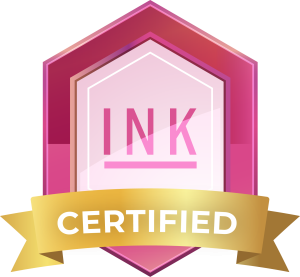
One of the faces tucked inside Personal Growth is Financial Wellness. Your financial health takes planning. While I was always good at staying out of debt, planning for a long-term nest egg was harder. I found it challenging because I've seen it done wrong so many times.
Discovering your path to financial wellness is individual… unique to you. But in this article, I'll share three tips to help you find your best answers.
Table of Contents
My Mom knew she needed a plan for long-term finances. So, she invited insurance representatives into her home as many women of her era did. But, sadly, I think they could tell Mom had no clue what to do.
"Judi, can you help me?" Mom asked when I visited with her.
"I'll try. What's the problem?"
"I have these insurance policies, but they tell me I lose them if I don't do something."
"Really? Do you have some paperwork to help me make sense of that?"
Mom got up, leaning on her walker for support, and headed for her bedroom. She returned with a giant, fat, manilla envelope a few minutes later.
"They're all in here," she said as she handed the folder to me.
I took the bulging folder and peeked inside at the crammed papers. I pulled out a handful and flipped through, noting the dates. Some were current. Others went back 20+ years.
"Could I take these home with me and look them over?" I asked, trying to keep the angst out of my voice.
"Sure, that's fine. I just get so confused."
I nodded. I could see why.
"I used to have another policy, but they said the money is gone."
"What? How could that happen?" I could hear my voice tone raise an octave.
"I was having some problems making the payment, so I called my agent."
I nodded, listening carefully." Okay, what did he tell you?"
"He said not to worry about it. They could take the premium from my paid-in fund."
"How long ago was that?"
"I'm not sure, several years ago. Then I got a notice that the policy was gone."
Anger at the company and the misdirection she had received surged, but I made every effort to keep calm. Names for scoundrels like that didn't fit in a conversation with my Mom, who I'd never heard say a swear word.
Why hadn't he offered her an option to cash out and get back what she paid in? Now it sounded like she was going through the same thing again.
Sure enough. Mom lost two different policies when she ran into financial challenges and the sales rep, to save his commission, depleted what she had paid in and left her with nothing. That felt like a very unethical way to treat a senior on a fixed income.
Mom had no plan for long-term care, only those policies which weren't worth the paper they were printed on. No wonder she fought going into an assisted living center.
If you're meeting with a personal consultant or advisor, consider their motivation. What's in it for them? How does that feel in your gut? What additional information do you need before you make your decision?
I've also had bad experiences myself, though not the same kind…
"You need to go and sell that stock right now before the price drops," snapped my ex, Charlie.
"I need to leave for work now, or I'll be late," I felt my spine stiffen but tried to keep my voice even.
"No, you need to go sell that stock first."
"I'm sorry, I don't have time. My computer's not even turned on," I retorted defensively.
"You never pay attention and don't focus enough on your trading," he stormed and headed back to the stock market on television.
Charlie was a day-trader. Some days he did well. And some days, he lost money.
I didn't have that mindset.
While Charlie traded, I managed a home, worked full time, and ran a business. There wasn't enough of me to go around. It didn't help that things hadn't been going well between us for a long time.
Finally, without saying anything, I made sure all my stocks were sold and moved my remaining money into a savings account that I nicknamed Escape. It was well named and predicted the future.
Three years later, and single, I started exploring what I should do with money from a business sale. I learned about managed funds and found one that the investment firm I'd buy from - one of the big boys - managed 100%.
It had no annual fee, no transaction fees, and a good reputation for performance. I shared what I'd found with my accountant.
"That's the fund I use," Katie responded confidently. "I've had it for several years. I've been pleased with it. I especially like the fee structure and reliability."
I still have that fund, and it has helped me grow my nest egg and financial wellness at the same time as I've been busy growing and taking care of my business.
I have a colleague, Heather, who loves to get up at five in the morning and trade before she heads for work.
Just the thought of that stresses me out, and I go into resistance mode.
Before you take on investing, you need to know yourself. How much time do you want to spend involved with it? Many people are successful with investing, but you need to figure out what protecting or growing your resources looks like.
In my experience, you need to find some outside resources that are good with financial wellness and get advice.
I did online research, examined my options, and learned what friends that invested did. Keep in mind what works for one person doesn't work for someone else.
One dear friend had a broker/advisor that she worked with for years. It worked well for her, which her portfolio showed. But when I tried to work with her broker, I ran into issues.
They were too busy to get back to me with answers or requests. Their fees for every buy and sell ate up my profits, plus there was an annual fee based on the size of my account. For me, they made money; I didn't.
I tried two different brokers and ran into the same situation.
Many people don't realize that some of the movement on the market is manipulated. What? Why? Brokers or brokerage houses generally get paid every time you buy a stock… and every time you sell a stock. The more trades (buys or sells) made, the more they earn regardless of market direction.
That is the dark side of investing, no one tells you.
Tip 3: Look for all the obvious and hidden charges.
This goes for stocks, bonds, and bank-handled things like Certificates of Deposit, CDs. Each has associated fees. You also need to know when and how to cash out of a CD and when it can cost you a lot of money.
With CDs, you have a window when they automatically renew. During this window, you can cash out without a penalty. However, miss the window and then try to cash out, and the fees can be sizeable.
If you don't investigate these things, it's like playing a game without knowing the rules. You can only hope and work toward success when you know how the game is played.
For my retired, disabled sister Gena, I'm scheduling a visit with a representative from her bank that specializes in Financial Growth and Security. It's part of their customer service, so the woman is salaried and not trying to earn a commission.
Gena is inheriting Mom's estate as our parents planned. It's to help her be taken care of now that they are both gone. Gena is inexperienced with investing and risk-averse. She needs to protect more than grow her funds.
Gena's needs are very different from my friend Heather whom I mentioned earlier. Heather loves the challenge and game of investing. But she is 38, working full-time, and risk-tolerant. Something like that would not be a match for my sister.
These questions may help you discover the kind of investing that will help you.
You have to do your homework to evaluate your options. First, consider what's happening in the world around you. Then work toward decisions that best fit your individual needs.
Like running a business, you periodically need to re-evaluate and ensure you're still on course. Focus on the big picture. Jumping in and out with every whisper of bad news won't help you get where you want.
Consider your strengths and weaknesses. Then, lean into your strengths and outsource weaknesses to experts.
That's precisely the problem I solve for clients. I free them to focus on their strengths while I help them with marketing content and strategies.
Message me if you're improving people's lives with wellness, coaching, or personal development. Let's discover how I can solve problems and increase your web traffic, leads and sales. More money in your bank. I do that.
Here are some resources on the pillars of wellness. And retirement financial wellness.
 Judith Culp Pearson receives three top honors
Judith Culp Pearson receives three top honors
at the annual Society of Permanent Cosmetic Professionals in
Ft. Worth, Texas - October 7-9, 2023




